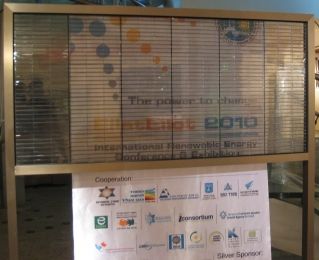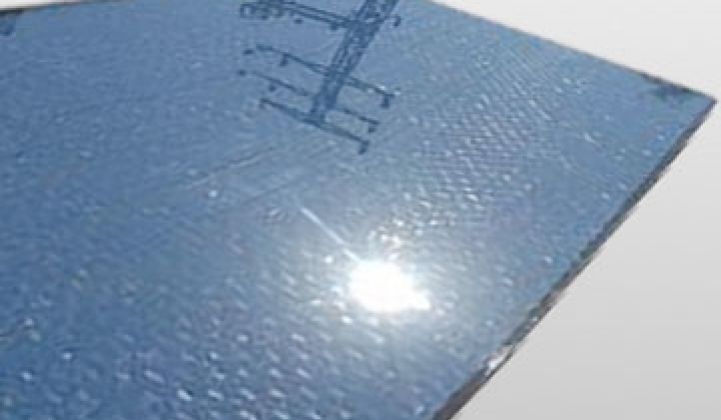Israel's Eilat-Eilot Renewable Energy Conference expects thousands of energy experts to gather this week in the town of Eilat. The long list of Israeli greentech companies exhibiting at the show can be found here. We reported on renewable happenings in Israel, the "start-up nation," here.
Renewable energy and greentech in Israel are an obvious fit. Israel has no shortage of solar resources, an ongoing water crisis and obvious security reasons for seeking energy independence. The country has an entrepreneurial spirit and the necessity to focus on international markets. There have already been some successes: Solel, an Israel-based thermal solar supplier, was purchased by Siemens for $418 million in late 2009.
Start-up Pythagoras Solar took the opportunity to unstealth at this trade show and revealed a few interesting tidbits about itself in an exclusive interview with Greentech Media. I spoke with the VP of Business Development, Udi Paret, last week.
The 20-person firm was founded in 2007 and received $10 million in Round A funding in 2008 from Pitango Venture Capital, Evergreen Venture Partners, and Israel Cleantech Ventures, after seed-funding and incubation by Precede Technologies. The CEO, Gonen Fink, seemingly like every other Israeli entrepreneur I have interviewed, served in the Israeli Defense Force's elite intelligence unit as a Captain. (Apparently, Israel is the start-up nation and the elite-intelligence-unit nation.)
Pythagoras Solar is a silicon-based low-concentration solar concentrator, as outlined in these patent documents. Low-concentration silicon solar panels have achieved little traction in the market so far (See SV Solar and Solaria).
Patent diagram of Pythagoras Solar's concentrator element
Rather than attempt to build flat roof-based PV panels like 50 other VC-funded solar start-ups are doing, Pythagoras abandoned that original intention to focus on the nascent building integrated photovoltaic (BIPV) market. Their concentrator architecture provides a 2X multiplier, but more importantly, yields a transparent module that could conceivably be used in window and curtain wall applications. The firm envisions a photovoltaic solar device that replaces conventional building products with material that improves the energy efficiency of the construction, while also generating electricity and providing some aesthetic appeal. Eventually, this type of construction might yield a net zero energy building
The start-up hopes to ship product this year.




